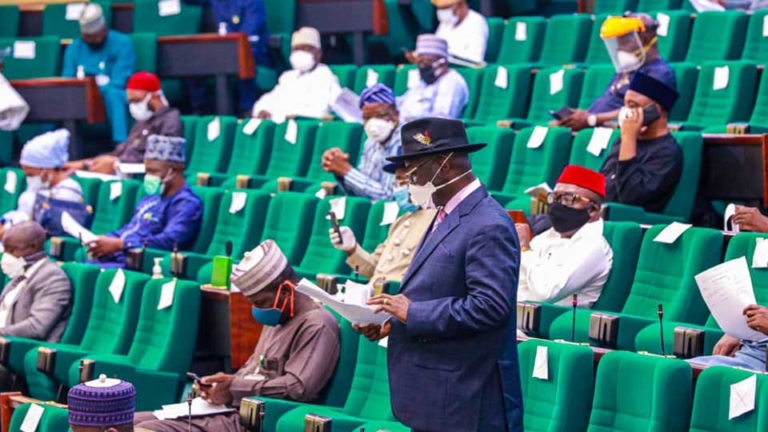News
PIB is problematic; but here is why we made it into law – Delta Lawmaker explains

A lawmaker from Delta State, Rep Ben Igbakpa has provided an explanation for why the Senate passed into law the controversial Petroleum Industrial Bill (PIB).
The PIB which has faced criticism in social discourse since it was mooted over 20 years ago was passed into law on Thursday,
Highlight of the law is that the host communities would get 3% operating expenditure of oil firms to host communities, while 30 percent of Nigerian National Petroleum Corporation (NNPC) profit from oil and gas should be used to fund exploration of frontier basins.
Commenting on the law which has stirred further backlash, Niger Delta Congress (NDC) in a statement on Sunday said the PIB is “one legislation too many, aimed at purloining the resources of Niger Delta.”
While newly elected president of the Nigerian Association of Chambers of Commerce, Industry, Mines and Agriculture, NACCIMA, Ide John Udeagbala, said the PIB law would reform of the Nigerian oil and Gas sector that has a lacked clear, appropriate legal framework.
However, taking to his social media on Sunday, Mr Igbakpa provided the context in which the lawmakers made the law.
According to the long statement which came in thread, the lawmaker explained that lawmakers understood that it would face a backlash from citizens but they had to strike a balance between people’s expectation and the reality of interests.
He wrote; “True, the house of Reps passed the bill at 5% allocation for the host communities. But that is not the whole story. In fact, so much of the arguments and back-channel lobbying to get this bill to where it is today can not be exhaustively explained in a summarized form.
“Legislation is very tedious, more so, when it concerns resource allocation and revenue appropriation. Lawmakers always try to blur the lines btw the expectations of the people and the reality of interests. Not quite easy when interest is permanent and expectations are undulating.”
Lawmakers in the south-south region have particularly faced criticism for not opposing the bill which has been termed to be against people from the region but Mr Igbakpa said the bill had to be done to save the struggling oil and gas sector in the interest of the country.
He continued, “There are calls for the head of lawmakers from the Niger Delta particularly alleging that we did not do enough to impress the expectations of our people. That would have been a wild guess if I wasn’t aware of efforts put in by factions of the ND caucus in the national assembly.
“The past few years have witnessed dramatic changes in the oil and gas industry. Currently in Nigeria, only @TotalEnergies is active across all streams of the oil and gas sector. Many companies are still struggling to operate in a badly affected oil and gas industry.
“The focus of the PIB is to serve as a legal framework to decide the obligations of the Oil and Gas companies (including NNPC) and the Nigerian state (especially the host communities). The spelt out obligations also include a responsibility to ensure the survival of the companies.
“The PIB is not perfect. No law in the world is perfect. PIB a relatively new pledge for ordering the intersecting affairs of all stakeholders – companies, the Nigerian state, and the Nigerian people. However, the bill has verified the byline of conflicting interests.”






